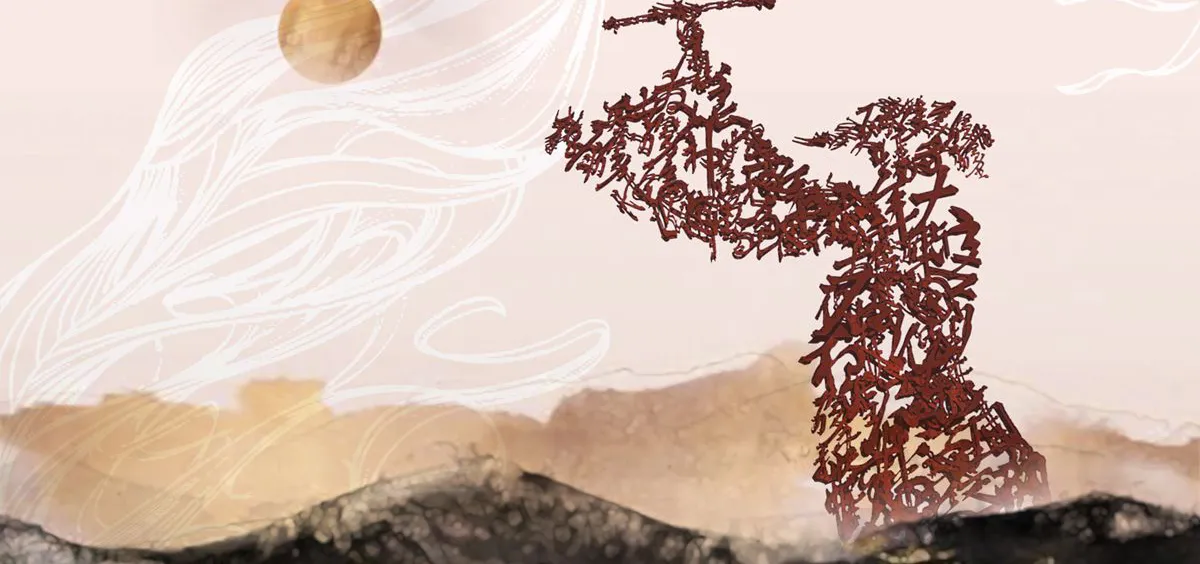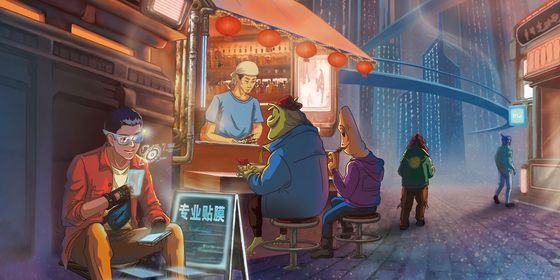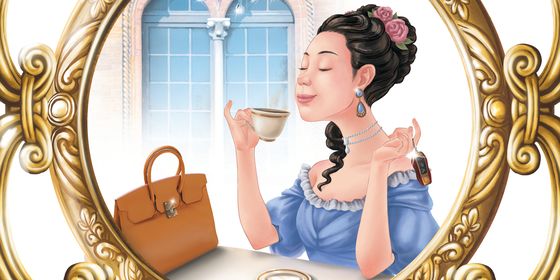Lin Yutang’s biography of Su Dongpo presents a supernaturally complex portrait of the poet
The Chinese mind usually glamorizes a poet as wearing a ‘coolie hat,’ putting his hand to the plough and standing against an idyllic hillside,” writes Lin Yutang in The Gay Genius, “provided that he can also compose good verse and beat time to it by striking the buffalo’s horn, and further provided that he occasionally, or even frequently gets drunk, and climbs the city wall in order to prowl in the moonlight.”
What follows is a 400-page paean to the Song dynasty poet-official Su Shi (苏轼), in which Lin tries to complicate this picture—and succeeds in imbuing an almost superhuman level of complexity and charisma to 11th-century China’s most notable personality.
It’s up for debate whether Su—referred to throughout the book by his pen name, Su Dongpo (苏东坡) or Su Tungpo—quite deserves the title of this biography, which was clearly chosen in a time when the word “gay” still meant happy and cheerful. That he was a genius is not much in doubt, but he could also be irritable, melancholy, and dissatisfied, as many of his poems attest.
Then again, as Lin suggests, it is very difficult to define Su’s character fully due to the sheer number of hats he wore. Besides the literal scholar’s hat Su would have sported as a senior official of the Song dynasty, Lin writes that Su was an “incorrigible optimist, a great humanitarian, a friend of the people, a prose master, an original painter, a great calligraphist, and experimenter in wine making, an engineer, a hater of puritanism, a Yogi, a Buddhist believer, a Confucian statesman, a secretary to the emperor, a confirmed winebibber, a humane judge, a dissenter in politics, a prowler in the moonlight, a poet, and a wag. And yet that might miss the sum total of what made up Su Tungpo.”
Biographies are often written because their writers see or wish to see something of themselves in their subject. Like Su, Lin was one of China’s leading polymaths of his generation, with significant accomplishments as a scholar, critic, novelist, essayist, translator, linguist and inventor. Though living 900 years apart, both men were of a specific genre of Chinese personality: genial and moderate; successful but not careerist; spiritual but not zealous; with a strong love for simple leisurely pleasures, be they calligraphy, wine, or a good nap.
Such is Lin’s adoration for Su that there are times when the reader must take the book with a heavy pinch of salt. His endless praise of his subject can be cloying, and at times almost sexually charged, such as when Lin writes that Su’s wife could never really understand him, or describes Su as having “prominent cheekbones and an imposing forehead, extremely long, brilliant eyes, a well-proportioned chin, and a beautiful, tapering, long mandarin beard,” and “sensitive, mobile, full-powered lips.”
With Su living the very fullest of lives, the pace of this tome can be uneven, with many pages meticulously devoted to the internecine political battles of the Song court—who back-stabbed whom, when, and where—and entire chapters focused on the rise of state capitalism. These factional battles provide background to Su’s exile to Hubei, Canton, and eventually the island of Hainan, but may wear down all but the most ardent history buffs.
However, Su’s rivalry with chancellor Wang Anshi is crucial to Lin’s development of his character as a hotheaded and outspoken humanitarian. Angered by Wang’s reforms, which saw the state gain monopolies on salt and impose high interest rates on peasants, Su wrote two lengthy letters advising the emperor to change course: “All this commotion is because the whole country is coming to believe that Your Majesty is looking for revenue, while you maintain you are working only for their good. Whilst you insist that you are totally disinterested, the whole world thinks you are avaricious.”
Though well-known during his lifetime, Su’s fame grew even greater in death—a few decades later, the emperor conferred on him the posthumous title of the “Literary Patriotic Duke.” “Su Tungpo’s one great fault was his habit of always speaking his mind before guests or in writing,” writes Lin, and suggests that this trait, alongside his literary genius, has held Su so central to Chinese hearts for so long.
Lin notes that Su met great success in official duties—quelling infanticide and saving orphans, building sanitation systems and improving public health—but portrays him as a poet at heart, happiest in exile despite the loss of rank and bouts of poverty it caused. The tensions between Su the poet and Su the administrator are scattered throughout the book, as can be seen from a poem he wrote, heavy with guilt from his role as a magistrate:
On New Year’s Eve, I should go home early,
But am by official duties detained.
With tears in my eyes I hold my brush,
And feel sorry for those in chains.
The poor are trying to make their living,
But fall into the clutches of the law.
I, too, cling to an official job,
And carry on against my wish to rest.
What difference is there between myself
And those more ignorant than I?
Who can set them free for the time being?
Silently I bow my head in shame.
Given Su’s renown as one of the greatest Chinese poets, the book devotes less space to Su’s nearly 3,000 surviving poems than one would expect. This is in part due to the sheer breadth of Su’s other vocations, and partly because the concise and tonal meanings of Chinese poetry do not always translate well.
Like Su himself, The Gay Genius tries to offer something for everyone: Some readers will love the detailed dissection of political factionalism, others will marvel at Su’s stoicism as a statesman, and many will wonder at his mysticism, a mix of Buddhism and Daoism, and how it imbued his writing. (Su described good writing as “like the sailing of the clouds or flowing of water, moving forward where it is natural to move forward, and stopping where it must stop.”)
Though not everybody can be a genius like Su, perhaps we can find elements of him within ourselves: by answering a call to civic duty, writing a simple poem, being a loyal brother, or maybe just getting drunk under the moonlight. Su did all of these things and more. For us mere mortals, maybe doing one well is enough.–Carlos Ottery
The Golden Hairpin
The first translated installment of a wildly popular Chinese detective series first published online in 2014, The Golden Hairpin is set in the Tang dynasty, and follows investigative prodigy Huang Zixia as she goes on the run while trying to clear her name of her family’s murder. Disguised as a eunuch under the protection of Li Shubai, the Prince of Kui, Huang helps the prince crack cases and solve deadly conspiracies at court. A Chinese TV adaptation of the novel is currently in production.
Broken Stars
This anthology of short speculative fiction from China, translated by award-winning American author Ken Liu, is the second of its kind after 2018’s The Invisible Planets. Authored by top young sci-fi and fantasy writers such as Chen Qiufan, Baoshu, and Fei Dao, the stories range from hard sci-fi to cyberpunk and space opera. In particular, Zhang Ran’s “The Snow of Jinyang” invokes China’s ancient history and culture in a time-traveling plot featuring the protagonist creating the “internet” with 10th century technology—a style that Liu jokingly calls “silkpunk,” China’s counterpart to “steampunk.”
Fu Ping
Fu Ping, an immigrant from rural Yangzhou, comes to Shanghai to stay with her fiancé’s grandmother, a nanny working in a home for government officials. Urban life brings out Fu’s strong personality, so she stays in order to make a life of her own. Set in the early years of the PRC, Fu Ping makes up for its loose plot with a vivid study of Shanghai in the mid-20th century and a rich cast of characters from all classes and walks of life. Author Wang Anyi displays her style of providing compelling personal details about her characters while leaving ample room for imagination. – LIU JUE (刘珏)
Genius Loci is a story from our issue, “The Good Life.” To read the entire issue, become a subscriber and receive the full magazine.












